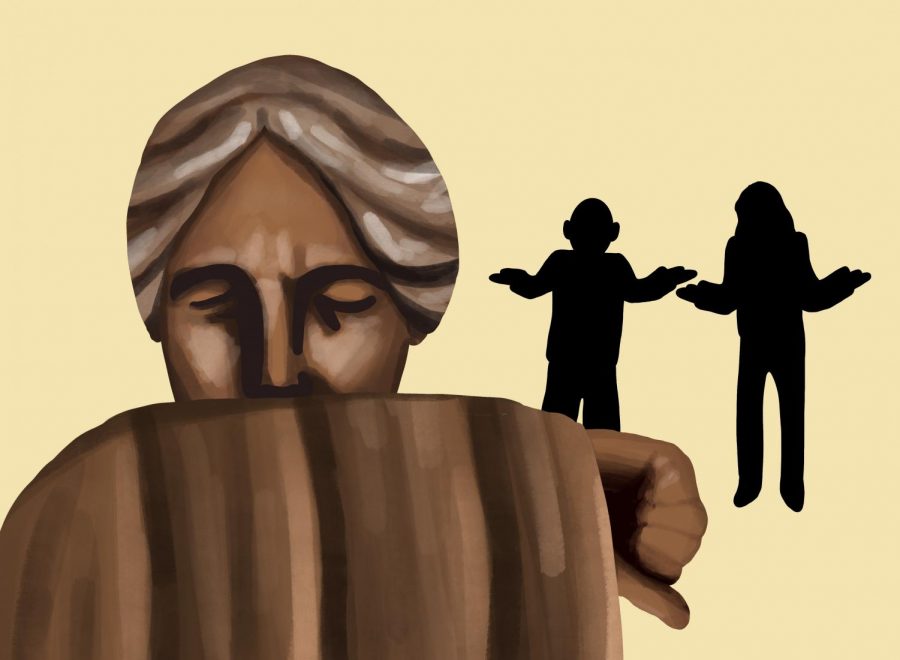Editorial | Pandemic reveals administration’s lack of preparedness
Apr 2, 2020
Disease existed on this planet long before human beings. Although no one can ever predict when a certain contagion may spiral into a pandemic, it is among the less ridiculous ideas to have a contingency plan for when outbreak occurs.
In government, the severity of the coronavirus panic has been poorly matched by a delayed and disproportionate response. Among the public, frequent and overt violations of social distancing guidelines threaten society’s ability to hamper the spread of the virus. And the University, with its vague and dubious response, has proven no less unprepared or callous than the rest of society’s institutions.
As hospitals overcrowd, essential workers strike, and states deactivate nearly all economic activity, society, now ground to a halt, has ample time to reflect on how it could have anticipated the age-old problem of illness.
The University, delaying its response until many students had already traveled home for spring break, announced a number of new measures in effect as a result of the worsening situation.
Classes will transition to an online format for the remainder of the semester, housed students will have their room and board payments prorated, drop deadlines have been postponed until just before finals begin, and those invoking credit/no credit for certain classes may use those classes to fulfill degree requirements. The student body has reacted lukewarmly to these adjustments, but often argue that these less-than-dramatic changes don’t address the anomalous situation enough.
Get The Daily Illini in your inbox!
As soon as the local health department confirmed cases of COVID-19 in the Champaign-Urbana area, news regarding the sick university individuals was mentioned in a Massmail. The first individual, however, was tested six days before he or she was made known to concerned Massmail recipients. For a disease suspected to have a five-day incubation period, delivering the news a week late does little to minimize the pathogen’s spread.
Although the email said individuals in close contact had already been notified to self-quarantine, neither the University nor the health department can guarantee all possible transmission opportunities were accounted for. COVID-19 spreads via fomites, or objects and surfaces a disease can survive on, and no individual can accurately recall each surface he or she has touched in the past few days.
It is easy to observe the administration’s predicament now and sympathize with the difficulty of resolving it, but one must recognize the utter lack of a preconceived plan of action. If a pandemic had not inhibited the school’s ability to function temporarily, another crisis would have, in which the University would be similarly unequipped.
Students, meanwhile, demand more freedom to choose. While some students advocated for an early end to a stressful semester, others displayed ardent dedication to finish. Students had signed up for lectures and discussion sections and now must regretfully resign themselves to a far more restricted online arrangement. Additionally, too many obstacles are presented to students in different time zones, students with a subpar internet connection or students with conditions precluding them from focusing the same way they would on campus, be it medical or regarding home circumstances.
The University would be wise to provide students with an option: finish the semester with the newly-offered means or withdraw from the semester, receive financial compensation and be a semester behind.
Any proper solution will not be one-size-fits-all. While all students are on campus in a similar context, the University has legitimate authority to rule on matters affecting all students, but as soon as students are sent home, wherever that may be, it waives its authority to determine what is best for all students.
Perhaps the tragic state of affairs will provide all members of society with the shot of adrenaline needed to awake them from the deep sleep of a frighteningly complacent comfort. Although the specifics of the situation are unprecedented, there are too many forwent opportunities to implement a confident and proactive plan of exigency.
The administration continues to struggle in properly assuring its student populace that the detour will be fair and equitable, but so long as its remedy is thoughtful to the necessities of even the neediest student, it may begin the lengthy process of rebuilding trust and reconciliation.






